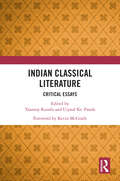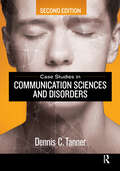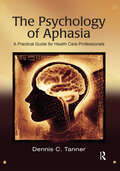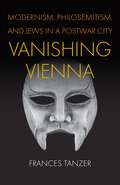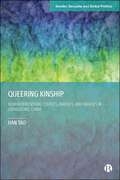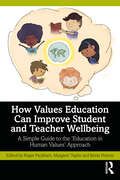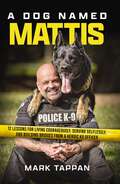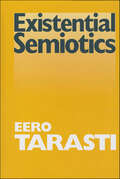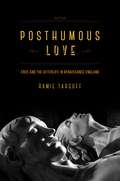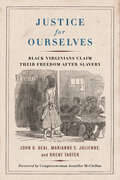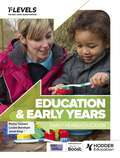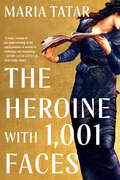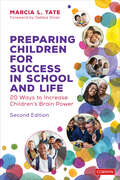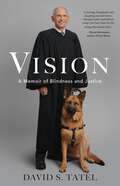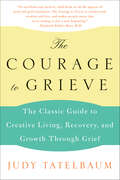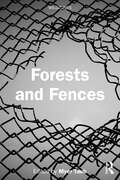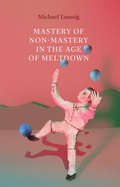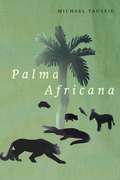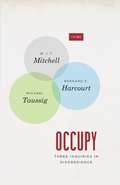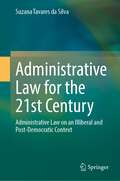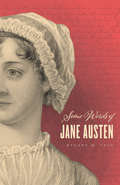- Table View
- List View
York Capital and Enovix
by Jo Tango Alys Ferragamo William VrattosIn June 2020, Jeremy Blank prepared for a meeting with his fellow partners at York Capital to discuss an investment he had championed in Enovix, a company developing a state-of-the-art, silicon-based battery. Early-stage technology companies, like Enovix, were not typical investments for York, but Blank had convinced his partners to invest. However, the partnership wanted to be "one and done" without reinvesting in future rounds. By 2020, Enovix had made great progress but not as quickly as forecasted. The company had set out to raise more money and received a term sheet from a well-known publicly-traded company. Blank saw this as an exciting opportunity for Enovix, but he was disappointed to see that it would require York to invest more capital and forego a key protective feature. How should Blank approach this meeting with his partners, and what should he recommend?
Indian Classical Literature: Critical Essays
by Tanmoy Kundu and Ujjwal Kr. PandaThis book critically analyses classical Indian literature and explores the philosophical, literary, and cultural landscapes which have emerged in response to ancient Indian texts. It highlights the relevance of these texts and studies and how they have come to influence modern Indian literature in various ways. The authors look at classical literature both as a theoretical premise that primarily seeks to develop new knowledge and as a sphere of serious modern/postmodern critical attention. The volume features essays on key texts including Abhijnanasakuntalam, The Cilappatikaram: A Tale of An Anklet, Mrichchakatika, Panchatantra, and Mahabharata.A useful guide to ancient Indian texts, the book will be indispensable for students and researchers of mythology and classical literature, literary and critical theory, Indian literature, Sanskrit studies, and South Asian studies.
Case Studies in Communication Sciences and Disorders
by Dennis TannerThe discipline of communication sciences and disorders is an exciting field that appreciates the wonders and complexities of human communication. Case Studies in Communication Sciences and Disorders, Second Edition is an informative and relevant text that addresses the myriad disorders, deficits, diseases, and disabilities that can lay waste to the incredible systems involved in communication.Case Studies in Communication Sciences and Disorders, Second Edition by Dr. Dennis Tanner provides engaging factual and historical information about each of the major communication disorders. The case studies presented in each chapter uncover the functional barriers encountered by clients of practicing speech-language pathologists and audiologists. Each chapter provides a scholarly overview of a communication disorder with an emphasis on etiology, diagnosis, and treatment and uses several case studies to illustrate the many different presentations of each disorder. Over 50 case studies reflect true clinical practice and include detailed patient histories that give humanity and depth to the patient-clinician relationship.Chapter Topics in the Second Edition Include: Language delays and disorders Articulation and phonology disorders Stuttering Voice and resonance disorders Aphasia Motor speech disorders Dysphagia Traumatic brain injury Hearing loss and deafness Case Studies in Communication Sciences and Disorders, Second Edition is a relevant and readable text for speech-language pathology and audiology students and clinicians that takes theory and clinical reasoning and applies them to a variety of interesting cases.
The Psychology of Aphasia: A Practical Guide for Health Care Professionals
by Dennis TannerBrain damage predisposes many persons with aphasia to a variety of psychological reactions, which are precipitated by stress and loss, and perpetuated by impaired verbal defense mechanisms and coping styles. Most of the literature on recovery from aphasia does not sufficiently address the overwhelming confusion and disorder that aphasia can cause in the patient, the communication partner, the communication between them, and their shared environment. The Psychology of Aphasia: A Practical Guide for Health Care Professionals fills this serious void.Dr. Dennis Tanner has studied the psychology of aphasia as a scientist and professor as well as evaluated and treated thousands of patients with neuropathologies of speech and language as a clinician over his 40-year career. This text represents the culmination of his efforts to understand the major psychological aspects of this complex communications disorder.The only text specifically addressing this topic, The Psychology of Aphasia is designed to provide the reader with a sound foundation of scientific information with current and historical scientific references spanning many decades. It delves into the certain psychological, emotional, and behavioral reactions that occur because of brain and nervous system damage, the psychological defenses and coping styles of patients and the verbal defense mechanisms they are deprived of due to their loss of language, as well as the grief response to the loss of physical abilities, valued objects, and the breakdown in communication.Each chapter is written in accessible language and provides practical case studies, illustrations, and examples of each major concept to reinforce learning.The whole aphasia rehabilitation team of speech-language pathologists, psychologists, physical and occupational therapists, social workers, physicians, nurses, home health aides, and family members will find The Psychology of Aphasia: A Practical Guide for Health Care Professionals an enlightening tool to bridge the gap between theoretical and practical issues in treating actual patients.
Vanishing Vienna: Modernism, Philosemitism, and Jews in a Postwar City (Jewish Culture and Contexts)
by Frances TanzerIn Vanishing Vienna historian Frances Tanzer traces the reconstruction of Viennese culture from the 1938 German annexation through the early 1960s. The book reveals continuity in Vienna’s cultural history across this period and a framework for interpreting Viennese culture that relies on antisemitism, philosemitism, and a related discourse of Jewish presence and absence. This observation demands a new chronology of cultural reconstruction that links the Nazi and postwar years, and a new geography that includes the history of refugees from Nazi Vienna.Rather than presenting the Nazi, exile, and postwar periods as discrete chapters of Vienna’s history, Tanzer argues that they are part of a continuous spectrum of cultural evolution—the result of which was the creation of a coherent Austrian identity and culture that emerged by the 1950s. As she shows, antisemitism and philosemitism were not contradictory forces in post-Nazi Austrian culture. They were deeply interconnected aspirations in a city where nostalgia for the past dominated cultural reconstruction efforts and supported seemingly contradictory impulses. Viennese nostalgia at times concealed the perpetuation of antisemitic fantasies of the city without Jews. At the same time, the postwar desire to return to a pre-Nazi past relied upon notions of Austrian culture that Austrian Jews perfected in exile, as well as on the symbolic remigration of a mostly imagined “Jewish” culture now taxed with redeeming Austria in the aftermath of the Holocaust. From this perspective, philosemitism is much more than a simple inversion of antisemitism—instead, Tanzer argues, philosemitism, problematic as it may be, defines Vienna in the era of postwar reconstruction.In this way, Vanishing Vienna uncovers a rarely discussed phenomenon of the aftermath of the Holocaust—a society that consumes, redefines, and bestows symbolic meaning on the victims in their absence.
Queering Kinship: Non-heterosexual Couples, Parents, and Families in Guangdong, China (Gender, Sexuality and Global Politics)
by Han TaoBased on ethnographic fieldwork in Guangdong, China, this book asks: what does it mean for Chinese non-heterosexual people to go against existing state regulations and societal norms to form a desirable and legible queer family? Chapters explore the various tactics queer people employ to have children and to form queer or ‘rainbow’ families. The book unpacks people’s experiences of cultivating, or losing, kinship relations through their negotiation with biological relatives, cultural conventions and state legislations. Through its analysis, the book offers a new ethnographic perspective for queer studies and anthropology of kinship.
How Values Education Can Improve Student and Teacher Wellbeing: A Simple Guide to the ‘Education in Human Values’ Approach
by Margaret Taplin Roger Packham Kevin FrancisPresenting Values Education as a solution to major challenges in education such as student disengagement and teacher burnout, this book provides a wealth of practical advice about how to implement the Education in Human Values approach in schools, promoting wellness and improved educational outcomes.Values Education is a world-wide movement and comes in several forms. This book explains the need for and nature of values education, provides practical, easy strategies for implementing the Education in Human Values (EHV) approach, and outlines the educational theories that underpin it. The practical strategies in this book can be implemented in small increments in all aspects of school life. The focus is on both student and teacher wellbeing. The methods can also be used by teachers to address their own professional and personal challenges and to help them cope with difficult situations that cannot be changed.Written for teachers, teacher educators, and teachers in training, this book is the one-stop-shop for gaining a better understanding of values education, how it can support whole-school wellbeing and how to implement it effectively.
A Dog Named Mattis: 12 Lessons for Living Courageously, Serving Selflessly, and Building Bridges from a Heroic K9 Officer
by Mark TappanTake a ride-along with Sergeant Mark Tappan and his amazing K9 partner Mattis, whose heroic actions will inspire you to live courageously, serve selflessly, and love passionately because every human (and dog) has a purpose.Sergeant Mark Tappan shares a unique bond with his K9 partner Mattis, one of the most decorated police K9s of all time. Mark knew from the first time they interacted that Mattis was something special. As a man of deep faith, Mark also knew that God's most profound teaching often comes through the most unexpected sources, and he soon realized that Mattis was going to teach him about loyalty, selfless service, and so much more.In A Dog Named Mattis, Mark shares twelve life lessons he's learned from working with Mattis. Through these first-hand accounts of bravery and service, you will learn profound lessons, like:being willing to 'go all in' and work with all your heart even when things are uncertain,how persistence pays off when you are willing to stick with what you know is right,how to be strong and courageous in the face of adversity,and much more. You will also get a behind-the-scenes look at the world of police K9s and gain a deeper understanding of:the many ways that K9 units assist police departments,what a K9 officer's daily life looks like,what kind of training police dogs and their handlers must go through,how a police dog is tested and selected,and the lengths a dog will go to in order to complete their mission. A Dog Named Mattis will capture the hearts of dog lovers everywhere and remind you that true success is built on relationships filled with trust, communication, and love.
Existential Semiotics: Essays In Existential Semiotics (Advances in Semiotics #35)
by Eero TarastiExistential semiotics involves an a priori state of signs and their fixation into objective entities. These essays define this new philosophical field.
Posthumous Love: Eros and the Afterlife in Renaissance England
by Ramie TargoffFor Dante and Petrarch, posthumous love was a powerful conviction. Like many of their contemporaries, both poets envisioned their encounters with their beloved in heaven—Dante with Beatrice, Petrarch with Laura. But as Ramie Targoff reveals in this elegant study, English love poetry of the Renaissance brought a startling reversal of this tradition: human love became definitively mortal. Exploring the boundaries that Renaissance English poets drew between earthly and heavenly existence, Targoff seeks to understand this shift and its consequences for English poetry. Targoff shows that medieval notions of the somewhat flexible boundaries between love in this world and in the next were hardened by Protestant reformers, who envisioned a total break between the two. Tracing the narrative of this rupture, she focuses on central episodes in poetic history in which poets developed rich and compelling compensations for the lack of posthumous love—from Thomas Wyatt’s translations of Petrarch’s love sonnets and the Elizabethan sonnet series of Shakespeare and Spencer to the carpe diem poems of the seventeenth century. Targoff’s centerpiece is Romeo and Juliet, where she considers how Shakespeare’s reworking of the Italian story stripped away any expectation that the doomed teenagers would reunite in heaven. Casting new light on these familiar works of poetry and drama, this book ultimately demonstrates that the negation of posthumous love brought forth a new mode of poetics that derived its emotional and aesthetic power from its insistence upon love’s mortal limits.
Justice for Ourselves: Black Virginians Claim Their Freedom after Slavery (The American South Series)
by Brent Tarter John G. Deal Marianne E. JulienneA new look at the Black Virginians who defined and realized their freedom after the collapse of slavery &“Verily, the work does not end with the abolition of slavery,&” wrote Frederick Douglass in 1862, &“but only begins.&” The Emancipation Proclamation and the Thirteenth Amendment altered a legal status; to make freedom a reality represented a different challenge altogether.Justice for Ourselves tells the stories of remarkable Black men and women in post–Civil War Virginia who persevered in the face of overwhelming barriers to seek their freedom and create a new world for themselves and future generations. Drawing on the life stories of individuals from all regions of the state—political leaders, teachers, ministers, journalists, and entrepreneurs—Justice for Ourselves recounts their quests to attain full American citizenship and economic independence before the onset of Jim Crow repression. Centering Black voices, this book includes tales of opportunities seized and opportunities lost and will reshape the narrative of Black history and the history of Virginia in the second half of the nineteenth century.
Education and Early Years T Level: Early Years Educator
by Penny Tassoni Louise Burnham Janet KingBegin your path to a career in Education and Early Years with this T Level textbook that covers both the core content and the early years educator specialism content you will need to understand to be successful in your qualification. For first teaching from September 2023.Develop your understanding of the key principles, concepts, theories and skills that will give you a solid foundation of knowledge to support you during your industry placement.Created in partnership with NCFE and written by highly respected authors Penny Tassoni, Louise Burnham and Janet King, you can feel confident relying on the insights and experience of these experts.- Track and consolidate your learning using the learning outcomes at the beginning of every unit and Test Yourself questions throughout each unit- Ensure you don't miss any important terminology with key terms highlighted and defined in context- Contextualise your learning with case studies, reflection tasks and practice points- Prepare for your examinations with knowledge-based practice questions- Understand how to approach your assignments with practical tasks and model answers
Education and Early Years T Level: Early Years Educator
by Penny Tassoni Louise Burnham Janet KingBegin your path to a career in Education and Early Years with this T Level textbook that covers both the core content and the early years educator specialism content you will need to understand to be successful in your qualification. For first teaching from September 2023.Develop your understanding of the key principles, concepts, theories and skills that will give you a solid foundation of knowledge to support you during your industry placement.Created in partnership with NCFE and written by highly respected authors Penny Tassoni, Louise Burnham and Janet King, you can feel confident relying on the insights and experience of these experts.- Track and consolidate your learning using the learning outcomes at the beginning of every unit and Test Yourself questions throughout each unit- Ensure you don't miss any important terminology with key terms highlighted and defined in context- Contextualise your learning with case studies, reflection tasks and practice points- Prepare for your examinations with knowledge-based practice questions- Understand how to approach your assignments with practical tasks and model answers
The Heroine with 1001 Faces
by Maria TatarWorld-renowned folklorist Maria Tatar reveals an astonishing but long-buried history of heroines, taking us from Cassandra and Scheherazade to Nancy Drew and Wonder Woman. The Heroine with 1,001 Faces dismantles the cult of warrior heroes, revealing a secret history of heroinism at the very heart of our collective cultural imagination. Maria Tatar, a leading authority on fairy tales and folklore, explores how heroines, rarely wielding a sword and often deprived of a pen, have flown beneath the radar even as they have been bent on redemptive missions. Deploying the domestic crafts and using words as weapons, they have found ways to survive assaults and rescue others from harm, all while repairing the fraying edges in the fabric of their social worlds. Like the tongueless Philomela, who spins the tale of her rape into a tapestry, or Arachne, who portrays the misdeeds of the gods, they have discovered instruments for securing fairness in the storytelling circles where so-called women’s work—spinning, mending, and weaving—is carried out. Tatar challenges the canonical models of heroism in Joseph Campbell’s The Hero with a Thousand Faces, with their male-centric emphases on achieving glory and immortality. Finding the women missing from his account and defining their own heroic trajectories is no easy task, for Campbell created the playbook for Hollywood directors. Audiences around the world have willingly surrendered to the lure of quest narratives and charismatic heroes. Whether in the form of Frodo, Luke Skywalker, or Harry Potter, Campbell’s archetypical hero has dominated more than the box office. In a broad-ranging volume that moves with ease from the local to the global, Tatar demonstrates how our new heroines wear their curiosity as a badge of honor rather than a mark of shame, and how their “mischief making” evidences compassion and concern. From Bluebeard’s wife to Nancy Drew, and from Jane Eyre to Janie Crawford, women have long crafted stories to broadcast offenses in the pursuit of social justice. Girls, too, have now precociously stepped up to the plate, with Hermione Granger, Katniss Everdeen, and Starr Carter as trickster figures enacting their own forms of extrajudicial justice. Their quests may not take the traditional form of a “hero’s journey,” but they reveal the value of courage, defiance, and, above all, care. “By turns dazzling and chilling” (Ruth Franklin), The Heroine with 1,001 Faces creates a luminous arc that takes us from ancient times to the present day. It casts an unusually wide net, expanding the canon and thinking capaciously in global terms, breaking down the boundaries of genre, and displaying a sovereign command of cultural context. This, then, is a historic volume that informs our present and its newfound investment in empathy and social justice like no other work of recent cultural history.
Preparing Children for Success in School and Life: 20 Ways to Increase Children′s Brain Power
by Marcia L. TateSet children on a path to success by understanding and nurturing the power of the brain Children’s brains develop faster in the early years than at any other time in their lives. If you want to make the most of this pivotal period, there is no time to waste. With newly updated research, the second edition of this bestseller provides parents and educators with strategies for building a brain-compatible environment where young learners can develop the skills they need to be successful. Inside you’ll find: How to design a brain-friendly environment, including the use of music, color, and lighting The effects of verbal communication, reading aloud, and discussion on children’s development Strategies for developing character and responsible behaviors An action plan to help parents follow through with implementation at home Multiple examples of best practices in action Based on the latest research on human growth and development and written by a nationally-known education expert, Preparing Children for Success in School and Life helps you satisfy a child’s natural hunger for learning and ensure that every child gets the best possible chance at success.
Preparing Children for Success in School and Life: 20 Ways to Increase Children′s Brain Power
by Marcia L. TateSet children on a path to success by understanding and nurturing the power of the brain Children’s brains develop faster in the early years than at any other time in their lives. If you want to make the most of this pivotal period, there is no time to waste. With newly updated research, the second edition of this bestseller provides parents and educators with strategies for building a brain-compatible environment where young learners can develop the skills they need to be successful. Inside you’ll find: How to design a brain-friendly environment, including the use of music, color, and lighting The effects of verbal communication, reading aloud, and discussion on children’s development Strategies for developing character and responsible behaviors An action plan to help parents follow through with implementation at home Multiple examples of best practices in action Based on the latest research on human growth and development and written by a nationally-known education expert, Preparing Children for Success in School and Life helps you satisfy a child’s natural hunger for learning and ensure that every child gets the best possible chance at success.
Vision: A Memoir of Blindness and Justice
by David S. TatelThe "moving, thoughtful, and inspiring memoir" (Bryan Stevenson, author of Just Mercy) by one of America&’s most accomplished public servants and legal thinkers—who spent years denying and working around his blindness, before finally embracing it as an essential part of his identity. David Tatel has served nearly 30 years on America&’s second highest court, the United States Court of Appeals for the D.C. Circuit, where many of our most crucial cases are resolved—or teed up for the Supreme Court. He has championed equal justice for his entire adult life; decided landmark environmental and voting cases; and embodied the ideal of what a great judge should be. Yet he has been blind for the past 50 of his 80-plus years. Initially, he depended upon aides to read texts to him, and more recently, a suite of hi-tech solutions has allowed him to listen to reams of documents at high speeds. At first, he tried to hide his deteriorating vision, and for years, he denied that it had any impact on his career. Only recently, partly thanks to his first-ever guide dog, Vixen, has he come to fully accept his blindness and the role it's played in his personal and professional lives. His story of fighting for justice over many decades, with and without eyesight, is an inspiration to us all.
The Courage to Grieve: The Classic Guide to Creative Living, Recovery, and Growth Through Grief
by Judy TatelbaumThis unusual self-help book about surviving grief offers the reader comfort and inspiration. Each of us will face some loss, sorrow and disappointment in our lives, and The Courage to Grieve provides the specific help we need to enable us to face our grief fully and to recover and grow from the experience. Although the book emphasizes the response to the death of a loved one, The Courage to Grieve can help with every kind of loss and grief.Judy Tatelbaum gives us a fresh look at understanding grief, showing us that grief is a natural, inevitable human experience, including all the unexpected, intense and uncomfortable emotions like sorrow, guilt, loneliness, resentment, confusion, or even the temporary loss of the will to live. The emphasis is to clarify and offer help, and the tone is spiritual, optimistic, creative and easy to understand. Judy Tatelbaum provides excellent advice on how to help oneself and others get through the immediate experience of death and the grief that follows, as well as how to understand the special grief of children. Particularly useful are the techniques for completing or "finishing" grief--counteracting the popular misconception that grief never ends. The Courage to Grieve shows us how to live life with the ultimate courage: not fearing death. This book is about so much more than death and grieving it is about life and joy and growth.
Mole Is Not Alone
by Maya TatsukawaIn this cozy picture book about friendship, Mole anxiously decides to journey through underground tunnels to attend a party.Mole is invited to a party, which is very worrisome. What if the party is too rowdy for Mole? What if Mole doesn’t know anyone there? What if Mole is just too shy to make friends? Mole worries through the tunnels, around Snake’s burrow, under the forest, past Bear’s den, and all the way to Rabbit’s door. But despite all those worries, maybe Mole can find a quiet way to make friends . . . With warm and sweet illustrations, every page of Mole Is Not Alone is an invitation to look and look again. Readers can follow Mole’s tunnel as it connects from one page to the next, learning along the way that everyone can make friends, even if some parties are quieter than others.An Indie Next List Pick A Kirkus Review Best Book of 2023A Book Page Best Book of 2023
Forests and Fences (WildZones)
by Myer TaubThis book examines critical themes in environmental studies though theatre and performance studies. It experiments with forms along with the practice of praxis to provide radical frameworks for resilience in the contemporary age of crisis. Drawing on Ravi Sundaram’s concept of “Wild Zones”, it explores the kinetic overflows in informal sites, but also in the intimate spaces that have been realigned or shocked or fenced in, especially in the context of the COVID-19 pandemic.This volume will be of great interest to scholars and researchers of theatre and performance studies, environment and sustainability, and environmental humanities.
Mastery of Non-Mastery in the Age of Meltdown
by Michael TaussigFor centuries, humans have excelled at mimicking nature in order to exploit it. Now, with the existential threat of global climate change on the horizon, the ever-provocative Michael Taussig asks what function a newly invigorated mimetic faculty might exert along with such change. Mastery of Non-Mastery in the Age of Meltdown is not solely a reflection on our condition but also a theoretical effort to reckon with the impulses that have fed our relentless ambition for dominance over nature. Taussig seeks to move us away from the manipulation of nature and reorient us to different metaphors and sources of inspiration to develop a new ethical stance toward the world. His ultimate goal is to undo his readers’ sense of control and engender what he calls “mastery of non-mastery.” This unique book developed out of Taussig’s work with peasant agriculture and his artistic practice, which brings performance art together with aspects of ritual. Through immersive meditations on Walter Benjamin, D. H. Lawrence, Emerson, Bataille, and Proust, Taussig grapples with the possibility of collapse and with the responsibility we bear for it.
Palma Africana
by Michael Taussig“It is the contemporary elixir from which all manner of being emerges, the metamorphic sublime, an alchemist’s dream.” So begins Palma Africana, the latest attempt by anthropologist Michael Taussig to make sense of the contemporary moment. But to what elixir does he refer? Palm oil. Saturating everything from potato chips to nail polish, palm oil has made its way into half of the packaged goods in our supermarkets. By 2020, world production will be double what it was in 2000. In Colombia, palm oil plantations are covering over one-time cornucopias of animal, bird, and plant life. Over time, they threaten indigenous livelihoods and give rise to abusive labor conditions and major human rights violations. The list of entwined horrors—climatic, biological, social—is long. But Taussig takes no comfort in our usual labels: “habitat loss,” “human rights abuses,” “climate change.” The shock of these words has passed; nowadays it is all a blur. Hence, Taussig’s keen attention to words and writing throughout this work. He takes cues from precursors’ ruminations: Roland Barthes’s suggestion that trees form an alphabet in which the palm tree is the loveliest; William Burroughs’s retort to critics that for him words are alive like animals and don’t like to be kept in pages—cut them and the words are let free. Steeped in a lifetime of philosophical and ethnographic exploration, Palma Africana undercuts the banality of the destruction taking place all around us and offers a penetrating vision of the global condition. Richly illustrated and written with experimental verve, this book is Taussig’s Tristes Tropiques for the twenty-first century.
Occupy: Three Inquiries in Disobedience (TRIOS)
by Michael Taussig Bernard E. Harcourt W.J.T. MitchellMic check! Mic check! Lacking amplification in Zuccotti Park, Occupy Wall Street protestors addressed one another by repeating and echoing speeches throughout the crowd. In Occupy, W. J. T. Mitchell, Bernard E. Harcourt, and Michael Taussig take the protestors’ lead and perform their own resonant call-and-response, playing off of each other in three essays that engage the extraordinary Occupy movement that has swept across the world, examining everything from self-immolations in the Middle East to the G8 crackdown in Chicago to the many protest signs still visible worldwide. “You break through the screen like Alice in Wonderland,” Taussig writes in the opening essay, “and now you can’t leave or do without it.” Following Taussig’s artful blend of participatory ethnography and poetic meditation on Zuccotti Park, political and legal scholar Harcourt examines the crucial difference between civil and political disobedience. He shows how by effecting the latter—by rejecting the very discourse and strategy of politics—Occupy Wall Street protestors enacted a radical new form of protest. Finally, media critic and theorist Mitchell surveys the global circulation of Occupy images across mass and social media and looks at contemporary works by artists such as Antony Gormley and how they engage the body politic, ultimately examining the use of empty space itself as a revolutionary monument. Occupy stands not as a primer on or an authoritative account of 2011’s revolutions, but as a snapshot, a second draft of history, beyond journalism and the polemics of the moment—an occupation itself.
Administrative Law for the 21st Century: Administrative Law on an Illiberal and Post-Democratic Context
by Suzana Tavares da SilvaThe book provides a discursive reflection on the current challenges facing administrative law, based on a key idea: the defence of the liberal model of society.The author describes the content of her book as a turning point on the traditional standards of the rule of law and the way it impacts on the administrative state and administrative law. Considering the current use (and abuse) of emergency law by governments – based on economic crisis, environmental crisis, pandemic, and the economic situation caused by the Ukraine war – she devises a different balance or equilibrium on the usual separation of powers. Many reasons contribute to this turning point: i) the weaknesses of an open society easily swayed by social networks; ii) social “tribalism” replaces common good and general interest; iii) social tribalism leads to illiberal society, which causes illiberal democracies; iv) illiberal democracies lead to ungovernability which reinforces the role of the government, the emergency law, and some de facto measures.The author looks at many recent decisions from the ECJ and the ECHR and some constitutional and administrative courts, which extends the interest of this work to a wide range of professionals, from scholars to students, from judges to lawyers, filling the gap from an administrative law perspective of the current issues.
Some Words of Jane Austen
by Stuart M. TaveJane Austen’s readers continue to find delight in the justness of her moral and psychological discriminations. But for most readers, her values have been a phenomenon more felt than fully apprehended. In this book, Stuart M. Tave identifies and explains a number of the central concepts across Austen’s novels—examining how words like “odd,” “exertion,” and, of course, “sensibility,” hold the key to understanding the Regency author’s language of moral values. Tracing the force and function of these words from Sense and Sensibility to Persuasion, Tave invites us to consider the peculiar and subtle ways in which word choice informs the conduct, moral standing, and self-awareness of Austen’s remarkable characters.

